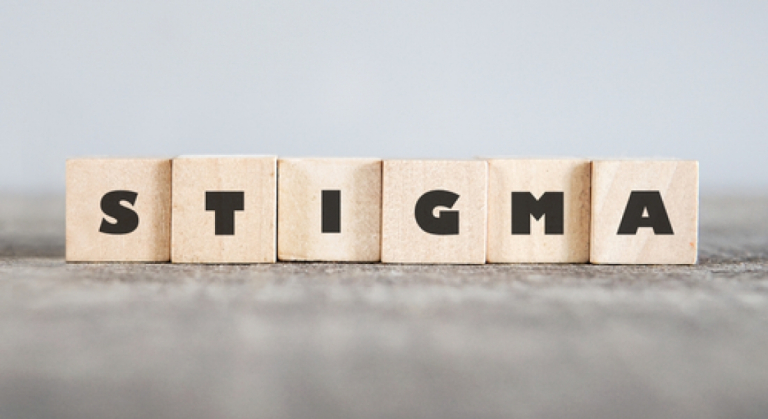Challenging Our Beliefs
My working life has been devoted to creating opportunities for people with barriers to move toward economic well-being. Every day, we are inventing precise solutions to the issues of economic inequity. The strategy and infrastructure of our agency was created to facilitate ways for our staff, board, our funders, and our consumers to have easy access to a variety of solutions to economic insecurity.
Our work is complex. It means staying ahead of ever-evolving research, policies, and laws. It means analyzing the data and the trends and reaching ahead of ourselves to shape the future.
In my 25-plus years in this business, I am always brought back to one major factor that can contribute greatly to reducing barriers to economic well-being. That one factor is stigma.
Where does stigma come from?
Stigma comes from fear. It comes from unfounded beliefs that are formed from one encounter, one media portrayal, one story heard once. The fear that creates stigma is the same type of fear that tells you that you shouldn’t fly because there was a plane crash two years ago, even though 100,000 planes fly safely worldwide every day, and at any given moment, there are between one and two million people in the air. The fear of a plane crash is not based on statistics. Nor is the fear that drives stigma about people with barriers.
If many of us were to honestly search own beliefs about certain population groups, I suspect we would uncover a stereotype that may have been created based in fear, not fact.
What are your beliefs about:
…people who suffer from substance abuse?
…individuals who were previously incarcerated?
…workers over 60 years old?
…children in foster care?
…people with developmental or physical disabilities?
…people with mental illness?
We can choose not to define people by their disability or their struggle, but remember that their “problem” is just one aspect of who they are. Each of us, no matter what our “category” deserves to be seen as more than our disability or our “problem.”
I believe that we can change the way the world sees those who face barriers. What will you do differently to help eliminate the thinking that perpetuates the fears that create stigma? What can you do to further the understanding that people are much more than their issue, and that eliminating stigma means creating new possibilities for individuals and for all of society.

